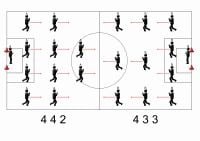As with any lesson in the classroom, PE Teachers and coaches are the ones that can inspire and drive the interest in any subject they teach, including PE.
Whilst there is a common train of thought to make everything we do inclusive for all children regardless of their ability and experience, the best advice for delivering sport is “make it fun”.
For example, in Primary Schools, Kwik Cricket is the ideal introduction to the game of cricket, thanks to its emphasis on participation and enjoyment.
There are numerous ways in which a group of children can play Kwik Cricket, as in theory any number of children play, whether it is two children together or 32 in group. Kwik Cricket is so adaptable to your own particular environment in terms of the time that may be available and numbers that are playing.
But as with any PE Lesson, there are number of considerations to bear in mind.
Decide what you are looking to achieve
What are your goals and objectives for your lessons and sessions? Deliver a series of key skills? Introduce the children you are teaching to the core elements of the game and basic principles?
Plan a session
It goes without saying that for a lesson or session to be successful, some level of planning is required.
Even if it is a basic timeline framework of how the session will evolve, having properly planned training sessions will give you more confidence as a teacher (especially if you are not familiar with teaching cricket), and your children will respond to it.
After all, poorly planned lessons (or lessons with no planning at all) will inevitably lead one way: to disorganised chaos and your objectives unfulfilled, and a group of disinterested children.
Plan a series of sessions
One step on from this, look to map out a series of sessions based across a set number of weeks or perhaps across a term.
As well as monitoring the development and improvement of your children in their skills and ability, you can create challenges to keep your children interested, introduce a new skill or action in each session, vary the games-element to the lesson with a new game in each session (some will prove more popular than others).
Variety in the delivery of skills and games will not only retain interest in the actual lessons but will make them want to return for more.
Adapt your style to the group
Teaching style is very individual. Disciplinarians will give children a dressing down individually and as a group. Then there are the super-enthusiastic coaches who can be seen to be overpowering over commanding any personal charisma and respect. Both styles can work, but you need to be adaptable.
Some youngsters will buck up if you give them a dressing down. However, many will see it as a weakness on your part that your “head went” and try to do it again.
Remember that most children come to lesson sessions to enjoy it. If your aims conflict with this, for example you are trying to get them to win at all costs, they will lose interest more quickly. You have to match your style to their goals, and not yours.
The more you work with the group and individuals the better your instinct becomes on managing your responses. And remember the old saying: Patience is a virtue.
Adapt your games to their level
Teaching group sessions will present one challenge: making sure everyone is getting the right level of coaching.
Invariably you will have some children who have a good level of skill, and others who struggle with the basics. The problem then is that it is easy for the more skillful children to get bored with basic exercises and skills and for weaker children to feel out of their depth with the more advanced stuff.
In each case, give players the right kind of challenge so they are engaged in your session.
Players who are losing interest are a sign you need to adapt the session to the needs of the group and players, and not try to squeeze your requirements in when they are not ready or willing.
Working out who can do what may take several sessions to become clear, with a few distracted players along the way, but it is all about
With some quick thinking and a little reflection during your sessions you can nip those difficult distraction players in the bud.
They will enjoy the sessions more, and so will you.











sir, kindly send me the lesson plan for school children to coach cricket
You can download a number of cricket lesson plans here. Otherwise you can subscribe to PE Office to access all our lesson plans and schemes of work.